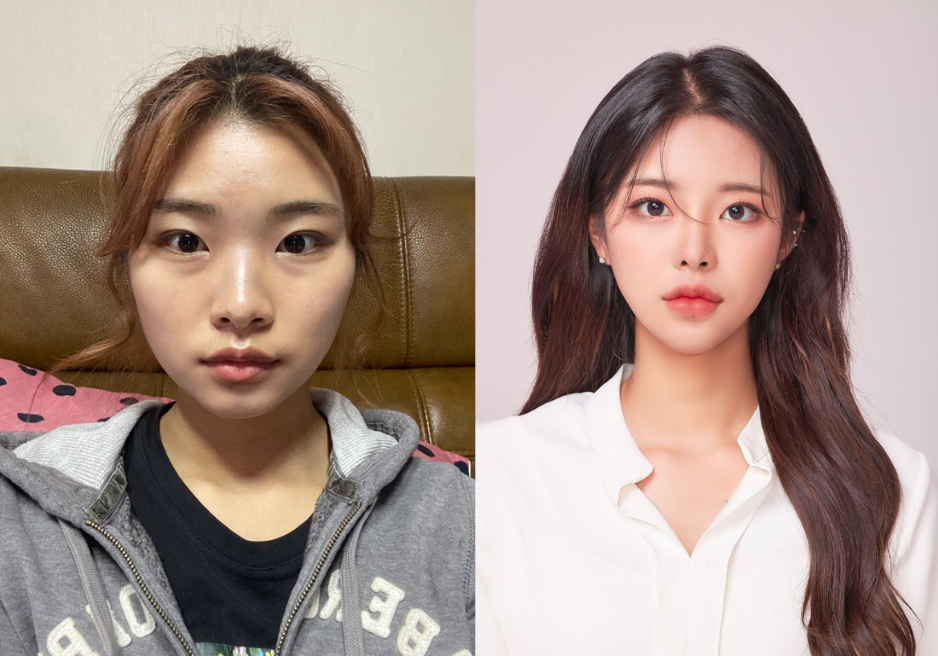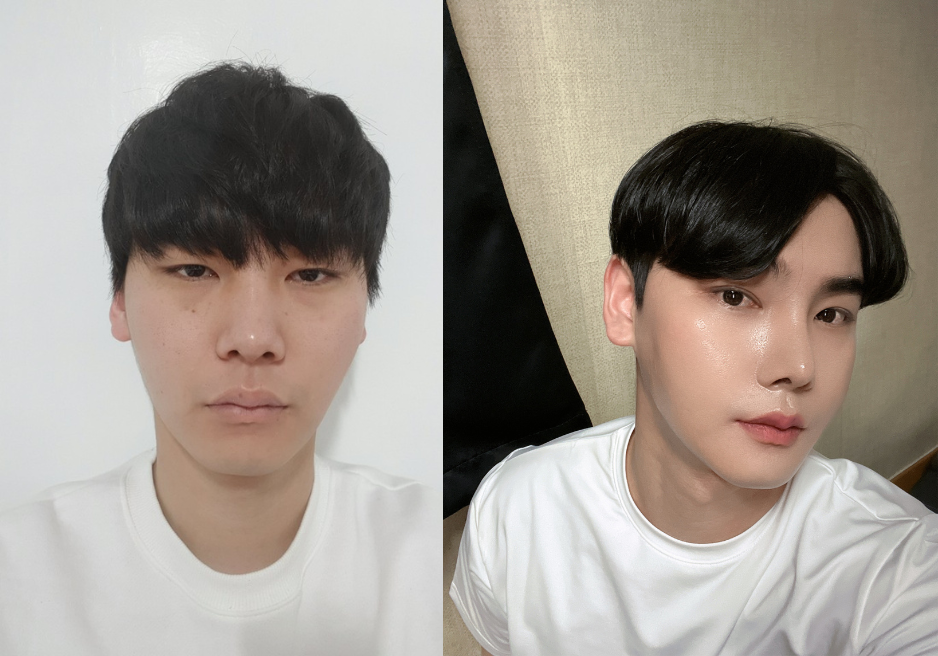Expert Tips for Managing Side Effects After Double Eyelid Surgery
Table of Contents
1. Swelling and Bruising
2. Pain and Discomfort
3. Infection
4. Scarring
5. Dry Eyes
6. Double Vision and Blurred Vision
7. Asymmetry
8. Bleeding and Hematoma
9. Itching and Irritation
10. Ectropion or Entropion
Double eyelid surgery, also known as blepharoplasty, is a popular cosmetic procedure aimed at creating a crease in the upper eyelid, resulting in a more defined and aesthetically pleasing appearance. While the surgery is generally safe and effective, like any surgical procedure, it can come with a range of side effects. This guide will explore the common side effects associated with double eyelid surgery and provide practical guidance on how to avoid and manage them.
We also offer a comprehensive section on precautions to take before eyelid surgery. Be sure to review this information if you are considering undergoing the procedure.

Swelling and Bruising After Double Eyelid Surgery
Swelling and bruising are the most common side effects after double eyelid surgery. These symptoms are a natural part of the healing process and can last for a few weeks.
Prevention and Management of Swelling and Bruising
-
Cold Compresses: Apply cold compresses to the eye area for the first 48 hours after surgery. This helps reduce swelling and minimizes bruising. Use a soft cloth or gel pack wrapped in a cloth to avoid direct contact with the skin.
-
Head Elevation: Keep your head elevated, especially while sleeping. Use extra pillows to prop your head up, which helps decrease fluid accumulation around the eyes.
-
Avoid Strenuous Activities: Refrain from heavy lifting, bending over, and vigorous activities for at least two weeks post-surgery. Such activities can increase blood flow to the head, exacerbating swelling.
-
Hydration: Drink plenty of water to help your body eliminate fluids and reduce swelling.
-
Diet: Eat a low-sodium diet to prevent water retention, which can contribute to swelling.
Pain and Discomfort After Double Eyelid Surgery
Pain and discomfort are common immediately following surgery. While the intensity varies among individuals, it is generally mild to moderate.
Prevention and Management of Pain and Discomfort
-
Pain Medication: Take prescribed pain medications as directed by your surgeon. Over-the-counter pain relievers like acetaminophen can also be used, but avoid aspirin and ibuprofen as they can increase bleeding.
-
Rest: Ensure you get plenty of rest in the days following surgery. Your body needs time to heal, and overexertion can increase pain levels.
-
Cold Compresses: In addition to reducing swelling, cold compresses can also help numb the area and reduce pain.
-
Follow Post-Operative Instructions: Adhere strictly to your surgeon’s post-operative care instructions to minimize discomfort and ensure proper healing.

Infection After Double Eyelid Surgery
Infection is a potential risk with any surgical procedure, though it is relatively rare in double eyelid surgery.
Prevention and Management of Infection
-
Antibiotics: Take any prescribed antibiotics as directed to prevent infection.
-
Hygiene: Keep the surgical area clean and avoid touching it with unwashed hands. Wash your hands thoroughly before applying ointments or touching the incision site.
-
Avoid Makeup: Do not apply makeup to the eye area until your surgeon gives you the go-ahead. Makeup can introduce bacteria to the healing incisions.
-
Follow-Up Visits: Attend all scheduled follow-up appointments so your surgeon can monitor the healing process and catch any signs of infection early.
-
Signs of Infection: Be vigilant for signs of infection, such as increased redness, swelling, warmth, pus, or a fever. If you notice any of these symptoms, contact your surgeon immediately.
Scarring After Double Eyelid Surgery
Scarring is an inevitable part of any surgery, but with proper care, scars from double eyelid surgery can be minimal and well-hidden.
Prevention and Management of Scarring
-
Scar Creams: Once the incisions have healed, use silicone-based scar creams or gels as recommended by your surgeon. These can help reduce the appearance of scars over time.
-
Massage: Gentle massage of the scar tissue can promote healing and improve the scar’s appearance. Follow your surgeon’s instructions on when and how to begin massaging the area.
-
Sun Protection: Protect the scars from sun exposure by wearing sunglasses and applying sunscreen. UV rays can darken scars and make them more noticeable.
-
Patience: Understand that scars can take up to a year to fully mature and fade. Be patient and consistent with your scar care routine.
Dry Eyes After Double Eyelid Surgery
Dry eyes can occur after double eyelid surgery due to reduced blinking or changes in the eyelid’s position.
Prevention and Management of Dry Eyes
-
Artificial Tears: Use lubricating eye drops or artificial tears to keep your eyes moist. Use them as often as needed, especially if you feel dryness or irritation.
-
Humidifier: Use a humidifier in your living space to maintain moisture in the air, which can help alleviate dry eye symptoms.
-
Avoid Strain: Limit activities that strain your eyes, such as reading or using digital screens, for prolonged periods in the initial weeks after surgery.
-
Protective Eyewear: Wear sunglasses or protective eyewear to shield your eyes from wind and other environmental factors that can exacerbate dryness.
Double Vision and Blurred Vision After Double Eyelid Surgery
Some patients may experience double vision or blurred vision temporarily after surgery. This can result from swelling, changes in the eyelid position, or the effects of anesthesia.
Prevention and Management of Double and Blurred Vision
-
Rest: Ensure you rest your eyes as much as possible. Avoid activities that require intense focus, such as reading or screen time, for the first few days post-surgery.
-
Cold Compresses: Applying cold compresses can reduce swelling and alleviate pressure on the eyes, helping to improve vision more quickly.
-
Report Issues: If double vision or blurred vision persists beyond a few days or worsens, report it to your surgeon immediately. Persistent vision problems may require further evaluation.
Asymmetry After Double Eyelid Surgery
Post-surgery asymmetry is a concern for many patients. While minor asymmetry is common and often resolves as healing progresses, significant asymmetry may require corrective procedures.
Prevention and Management of Asymmetry
-
Choose a Skilled Surgeon: The best way to avoid asymmetry is to choose a highly skilled and experienced surgeon who specializes in double eyelid surgery.
-
Follow-Up: Attend all follow-up appointments so your surgeon can assess your healing and address any asymmetry concerns early.
-
Patience: Understand that some asymmetry may resolve as swelling decreases and the final results of the surgery become apparent. Full healing can take several months.
Bleeding and Hematoma After Double Eyelid Surgery
Bleeding and the formation of hematomas (collections of blood outside of blood vessels) can occur after surgery.
Prevention and Management of Bleeding and Hematoma
-
Medication Precautions: Avoid blood-thinning medications and supplements, such as aspirin, ibuprofen, and certain herbal supplements, before and after surgery as advised by your surgeon.
-
Rest and Elevation: Rest and keep your head elevated to reduce blood flow to the area, minimizing the risk of bleeding.
-
Cold Compresses: Use cold compresses to constrict blood vessels and reduce bleeding.
-
Report Excessive Bleeding: If you experience excessive bleeding or suspect a hematoma, contact your surgeon immediately for prompt evaluation and management.

Itching and Irritation After Double Eyelid Surgery
Itching and irritation around the surgical site are common as the area heals.
Prevention and Management of Itching and Irritation
-
Avoid Scratching: Resist the urge to scratch or rub your eyes, as this can disrupt healing and introduce bacteria.
-
Moisturizing Ointments: Use moisturizing ointments or prescribed creams to soothe the area and reduce itching.
-
Cool Compresses: Cool compresses can provide relief from itching and irritation.
Ectropion or Entropion After Double Eyelid Surgery
Ectropion (outward turning of the eyelid) and entropion (inward turning of the eyelid) are rare complications that can result from excessive tissue removal or scarring.
Prevention and Management of Ectropion and Entropion
-
Experienced Surgeon: Ensure your surgery is performed by an experienced and qualified surgeon to minimize the risk of these complications.
-
Follow Post-Op Instructions: Adhere strictly to post-operative care instructions to support proper healing.
-
Report Issues: If you notice any abnormal eyelid positioning, report it to your surgeon promptly. Early intervention may prevent the need for additional corrective surgery.
Double eyelid surgery can provide significant aesthetic benefits, but it’s essential to be aware of the potential side effects and how to manage them. By following the guidelines outlined in this guide and adhering to your surgeon’s specific post-operative instructions, you can minimize risks and support a smooth recovery process. Remember, your surgeon is your best resource for addressing any concerns or complications that arise during your recovery. Always communicate openly and promptly with your healthcare provider to ensure the best possible outcome.
For a successful and safe double eyelid surgery experience, consider scheduling a consultation with a reputable clinic. At AB Plastic Surgery, our experienced team is dedicated to guiding you through every step of your surgical journey, ensuring you achieve your desired results with optimal care and support. Contact us today to reserve your appointment and take the first step towards your new look.






